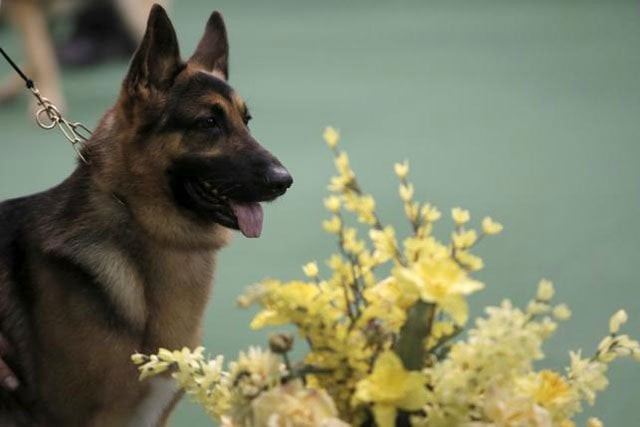In the winter of 1994, a farmer’s son was home from his boarding school for the holidays. He wanted a pup – a German Shepherd to be precise– exactly like the one his cousins in Lahore had been boasting about the whole autumn. But his village was not Lahore, nor were his parents as liberal as his uncle and family. Although General Ziaul Haq’s plane had crashed a few years ago, the renaissance of orthodox Islam in Pakistan, at least in the villages of Punjab, did not vanish with him.
“A pup?” the farmer looked at his son in disbelief. He was a God-fearing, saintly man; a descendant of Sikhs but his grandfather had embraced Islam. Religion was not handed to them at birth but in fact the practice adopted out of choice. On top of that, the 1980s were the return of everyone who could be credited with spreading Islam in the sub-continent from Muhammad bin Qasim to General Ziaul Haq. A dog was a bargain against the angels – an opportunity cost that the farmer’s son would have to bear.
“A household that keeps a dog, turns away the angel of good, my son,” the farmer tried to reason with his 15-year-old. “Dogs are unhallowed beings. They turn a place unholy with their presence. You will have to perform wudu (ablution) every time you touch him.”
“But Baba ji we do not have to keep it in the haveli; we can keep it in the barn with the other animals. The angels could still bring blessings to our home. Also, it is a guard dog; good for protecting animals. If you could please get me one, I promise you, I will never bring it in the haveli; I will keep it in the barn.”
“I will think about it. We shall discuss this when you come home for your summer holidays,” the farmer mumbled.
When the boy finally did come home, parental love had triumphed over religious conservatism. Waiting in the barn was a three-month-old pup with a broad head, a sharp muzzle and a thick black and tan coat. His bushy tail curved downwards and the puppy ran to the boy as soon as he saw him, like they were old friends. The boy sat down and started patting the dog’s back fondly.
“What are you going to call him?”
“Simba! Baba ji; I am going to call him Simba.”
“Why so?”
“Baba ji, Simba is a lion cub in a movie I watched at school. His father, Mufasa, is a just and honorable king. He loves his son more than anything. Simba loves him too. When Simba grows up, he looks just like his father. It’s a very good story, Baba ji. It reminds me of us. I will call him Simba so that when I am back at school, he reminds you of me.”
As the lazy summer wore on, the boy and his puppy frolicked around the canal which passed through lush green fields. Simba was a quick learner and could even find stones the boy would throw into shallow waters and thick crops of maize. They would beat the afternoon heat under the shade of sprawling trees. It was a perfect summer but it came to an end as all good things do and it was time for the boy to return to his boarding school.
“Baba ji, could you please feed Simba for me till I return again in the winters? You don’t have to touch him. Anyone can unleash him in the morning and evening for a walk. He likes to run after the birds in the fields, but he will find his way back to the barn. He always does. There is nothing to worry about it,” the boy said.
In October, the boy received a letter from his father.
“My son, Simba seems to have lost his appetite. He is not eating much. First, I thought it was probably because of your absence. I thought he missed you. But lately, I have seen that his bowel movements have been giving him pain while there also has been some blood in his faeces. He licks at his tail excessively unlike before.”
The letter further informed the boy that the farmer had taken Simba to their buffaloes veterinarian in the city but to no avail.
“He did not allow Simba inside his office,” the father sadly informed his son, “I pleaded with him, but I could not convince him to examine Simba. But he prescribed some medicine anyway.”
The letter urged the boy to come home over the weekend for Simba’s sake and that the principal will be informed of the sudden emergency at home.
The following weekend, after sunset, Simba finally rested his head in the boy’s lap. Ironically he was in the haveli, with the farmer sitting next to him. They sat silently, caressing Simba’s head, who weakly licked both their hands in return. The farmer did not resist.
It actually felt like the angel of mercy and good had abandoned the haveli, as Simba did not survive the night. It seemed like he had spent all his energy waiting for the boy to come home and was finally ready to pass on. Around dawn, the farmer dug a grave for their beloved Simba under a banyan tree on the ground of the haveli and it was there the dog remained resting, fending off or perhaps inviting in, the angel of mercy and good.



COMMENTS (13)
if you love someone you love their dogs as well
The most faithful creature almighty Allah created. It was with Ashabe Kaff in a cave for over 200 years. Heart warming story
Comments are moderated and generally will be posted if they are on-topic and not abusive.
For more information, please see our Comments FAQ